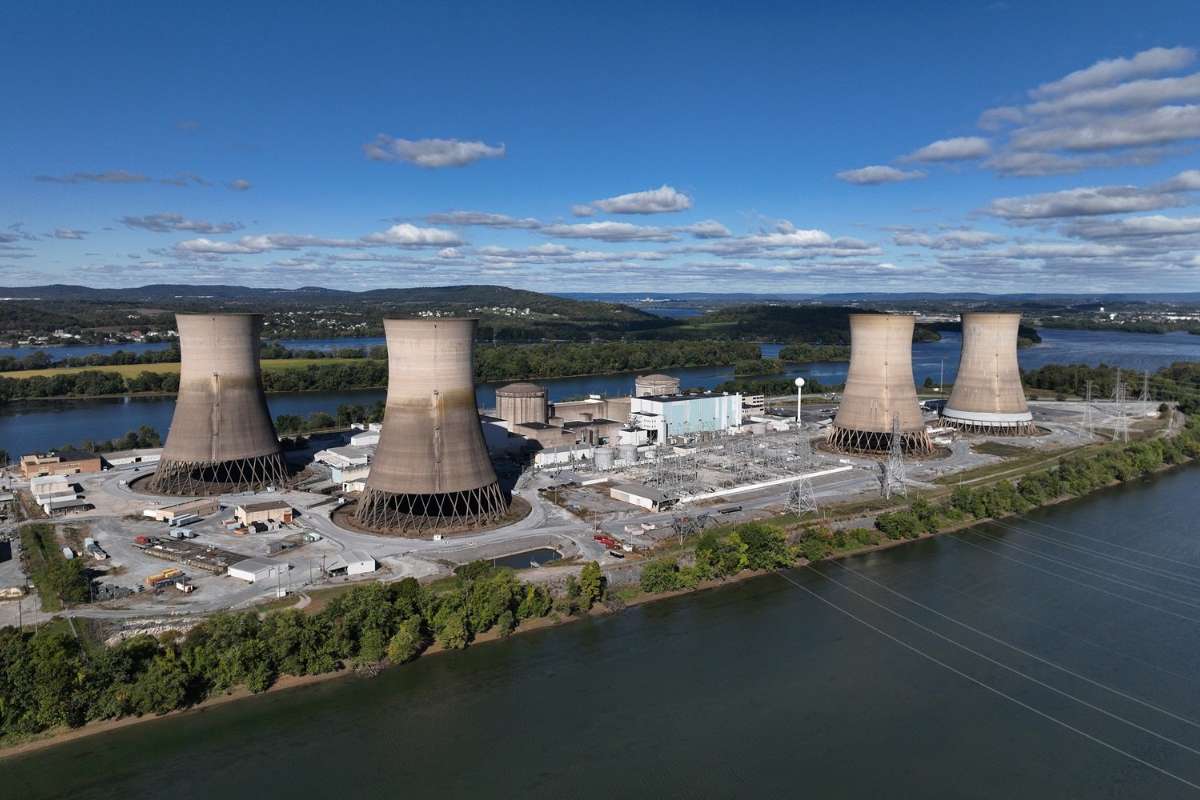HARRISBURG, Pa. — The U.S. Department of Energy said Tuesday that it will loan $1 billion to help finance the restart of the nuclear power reactor on Pennsylvania’s Three Mile Island. The project aims to return the idled unit to service by 2027 under a long-term agreement to supply electricity to data centers operated by Microsoft.
The Energy Department loan aligns with the administration of President Donald Trump, which has made nuclear power and artificial intelligence key energy and technology priorities. Federal officials said the financial support will reduce borrowing costs for Constellation Energy, the plant’s owner, as it works to rehabilitate the facility.
Constellation Energy Department loan shut down the plant’s remaining reactor in 2019, citing financial losses and the absence of state subsidies to keep it running. The company announced last year that it would invest $1.6 billion to restart the unit under a 20-year supply contract with Microsoft. According to the Department of Energy, the 835-megawatt reactor can generate enough power for roughly 800,000 homes.
Project Timeline and Upgrades
Under the restart plan, Constellation has renamed the facility the Crane Clean Energy Center. The company is restoring equipment including the turbine, generator, main power transformer, and control and cooling systems. It expects to return the reactor to commercial operation in 2027.
The Energy Department loan comes through an existing $250 billion federal program created in 2022 to support large-scale energy infrastructure projects. The Department of Energy did not release the loan terms, and Constellation declined to provide additional financing details.
Three Mile Island, located on an island in the Susquehanna River near Harrisburg, was the site of the nation’s worst commercial nuclear power accident. In March 1979, a partial meltdown destroyed Unit 2, which has remained closed since. Unit 1 continued operating for four decades and became the plant’s sole functioning reactor until its 2019 shutdown.
Industry and Historical Context
Constellation, which acquired the unit after corporate restructuring from its former parent company Exelon, said the restart will help strengthen regional grid reliability and support rising demand for electricity. Data centers, driven by rapid growth in artificial intelligence and cloud computing, have become major energy consumers in several states.
The partnership with Microsoft is part of a broader trend among large technology companies seeking long-term access to carbon-free power. Energy Department loan analysts say nuclear generation, which produces electricity without direct emissions, is increasingly viewed as a complement to wind and solar sources that fluctuate with weather conditions.
Federal officials said the project reflects a renewed national focus on nuclear energy. While new reactors remain costly to develop, policymakers across both parties have highlighted nuclear power as a tool to increase grid stability, limit carbon emissions, and meet sharp increases in electricity demand.
Industry groups have described the restart of an existing nuclear unit as less expensive and less complex than building a new plant. Still, the work requires extensive inspections and equipment replacement to meet regulatory standards after years out of operation. Constellation has not provided a detailed cost breakdown but said the loan will support energy security goals and long-term grid planning.
The Nuclear Regulatory Commission will continue oversight as the company conducts repairs and upgrades. The agency has said the unit must meet current safety and operational requirements before returning to commercial service.
Residents in the region have expressed varying views since Constellation announced the restart plan. Some local officials have pointed to jobs and economic activity tied to plant operations. Others have cited the site’s history and raised questions about long-term waste management and emergency response protocols. No significant regulatory challenges have been filed, and federal officials said the project remains on schedule.
The Three Mile Island restart comes at a time when several states and utilities are reassessing nuclear power’s role in the energy mix. With electricity consumption projected to rise over the next decade, particularly from data centers and manufacturing facilities, planners are weighing both traditional reactors and emerging small modular reactor designs.
Constellation said it expects to finalize major equipment installations next year. After completing system tests and receiving regulatory approval, the company plans to supply power under its agreement with Microsoft through the 2040s.
Visit Oil Gas Energy Magazine for the most recent information.












